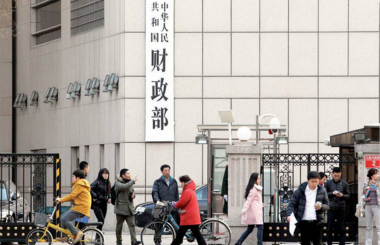Money may be best medicine for rural doctor shortage
Updated: 2016-04-13 08:31
By Wang Xiaodong(China Daily)
|
|||||||||
Doctors working in rural areas in Beijing will get a big raise - in some cases more than triple their current subsidies - under a measure by the municipal government to ease a shortage of healthcare resources.
Of Beijing's 3,919 villages, 847 have no medical or healthcare services. The gap has created many inconveniences for residents, Mao Yu, deputy director of Beijing Municipal Commission of Health and Family Planning, said on Tuesday.
Besides the shortage of doctors, more than 90 percent of the doctors in Beijing's rural areas are more than 50 years old. Young doctors are scarce, he said.
Experts say younger doctors typically have more up-to-date education and skills.
To bridge the health gap between its urban and rural areas, the city has decided to invest more resources in outlying areas, including training and attracting more doctors, Mao said.
Government subsidies for doctors in rural Beijing will increase to 3,500 yuan ($540) a month from the current 1,600 yuan before the end of year, and those working in more mountainous areas may receive an additional subsidy of 500 to 2,000 yuan, Mao said.
This means some doctors could have an average salary of up to 5,500 yuan a month, he said.
"The policy is meant to encourage doctors to work in mountainous areas, where conditions are harsher," Mao said.
Li Hongna, an official at Beijing's Finance Bureau, said subsidies for doctors in rural areas will increase in the future in light of factors such as inflation.
Yao Xiujun, a publicity official at the Beijing Municipal Commission of Health and Family Planning, said that, unlike doctors at public hospitals in cities, most rural doctors are involved in other income-generating activities, such as farming or other business, so they may not be reliant on government wages.
Over the next decade, China will undertake a series of measures to improve health resources in rural areas, including producing and training more qualified doctors and improving their welfare and social security, according to a guideline released by the State Council, China's Cabinet, last year.
The number of registered doctors working in rural areas in Beijing was about 4,600 at the end of 2014, according to the city's health commission. More than 4,200 such doctors will be added in the future, Mao said.
Health authorities will introduce doctors to rural areas through a number of means, including the recruitment of retired city doctors and medical graduates, cooperating with medical colleges to train staff and encouraging major hospitals in cities to share doctors with rural areas, he said.
The municipal government will also improve medical and health institutes in rural areas to ensure that all villages are covered by medical and healthcare services, Mao said.
Related Stories
Chinese doctor's associate held after triple killing 2016-03-28 07:53
Doctor urged psychiatric hospital for Germanwings pilot before crash 2016-03-13 20:02
Doctor documents 'horror stories' of Yazidi women, girls 2016-02-29 08:10
China to restore admission of pediatric undergraduates amid doctor shortage 2016-02-19 15:41
Locals continue to sing praises of Chinese doctor 2015-12-06 15:57
Today's Top News
Hello, China! Stephen Hawking debuts Weibo account
Manila set to restart revamp of airport in S China Sea
Forget cabs, now you can book plane through apps
Britain and China must join to solve steel crisis, ambassador says
Chinese soccer aims to be among world top teams by 2050
E-commerce tax not applicable on travelers,
says ministry
China gains stakes in Piraeus Deal
Riding on emotions
Hot Topics
Lunar probe , China growth forecasts, Emission rules get tougher, China seen through 'colored lens', International board,
Editor's Picks

|

|

|

|

|

|







